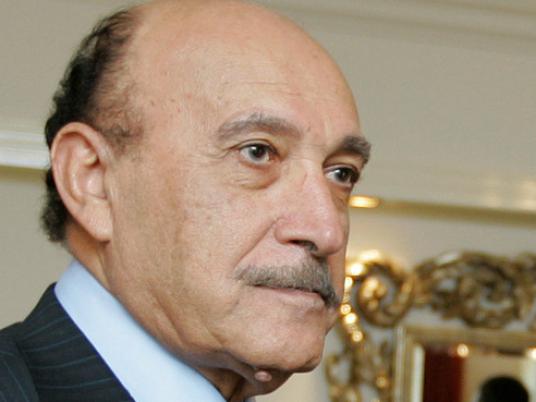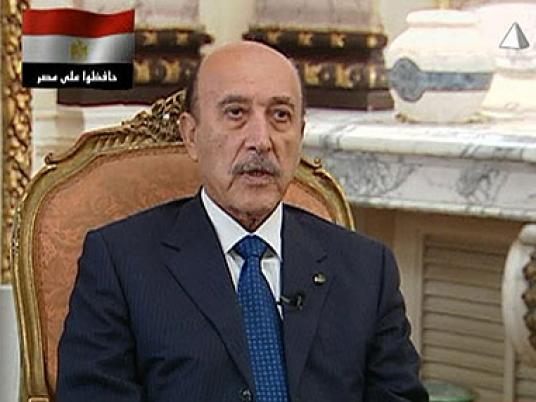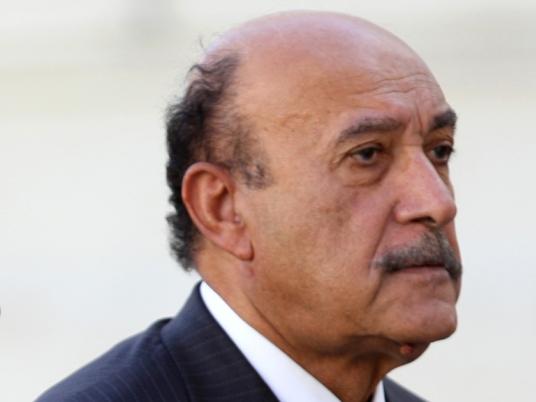
Former intelligence chief Omar Suleiman, who briefly served as vice president under Hosni Mubarak, died in a US hospital Thursday morning, state-run news agency MENA reported.
Suleiman suffered from lung disease several months ago, followed by cardiac problems. His health took a turn for the worse three weeks ago, after which he traveled to a Cleveland, Ohio hospital for treatment, MENA reported.
The 76-year-old, born in the Upper Egyptian town of Qena, joined the army in 1954 and received advanced training at the Frunze Military Academy in the USSR. He was ranked the most powerful intelligence chief in the region by Foreign Policy Magazine in 2009, ahead of the Mossad chief at the time, Meir Dagan. His legacy lies in his ruthless war against Islamic militants through the infamous extraordinary rendition program in partnership with the CIA that was initiated with a joint agreement between Egyptian intelligence and the CIA in 1995. Suleiman’s bureau was responsible for identifying and receiving suspected militants from around the world rendered to Egypt by the CIA.
His aide told Reuters Suleiman died while undergoing tests.
"He was fine. It came suddenly while he was having medical tests in Cleveland," said the aide, Hussein Kamal, without giving a reason for Suleiman's death.
A military source told Al-Masry Al-Youm that preparations are underway to transfer the body to Egypt as soon as possible.
After heading General Intelligence Services for 18 years, Mubarak appointed him vice president as the former president struggled to stay in office in February 2011. Suleiman announced Mubarak's resignation on 11 February. Despite his involvement in cracking down on protests, he later vowed to protect revolutionary goals during his presidential bid.
He was disqualified from the presidential race on 17 April after he failed to collect the required signatures from various governorates. After his bid failed, he traveled to the United Arab Emirates in June, where he was later joined by his daughters, German news agency DPA reported.
Since 2001, Suleiman led Mubarak’s cryptodiplomacy as he took over key foreign policy dossiers and his name started to appear in the public sphere despite his usually low profile. His close relationship with Mubarak goes back at least to 1995, when Suleiman ordered an armored vehicle shipped to Addis Ababa to transport Mubarak during a visit there, saving his life from an assassination attempt by Jama'a al-Islamiya gunmen.
He held a master's degree in political science from Cairo University. Suleiman’s intelligence career began in 1986, when he became deputy head of military intelligence, and then its director in 1991 before being appointed to the top General Intelligence Services post in 1993, which reported directly to Mubarak. He served in the 1962 Yemen conflict and the Arab-Israeli wars of 1967 and 1973.
Following his disqualification from the presidential race, Suleiman painted a bleak picture of Egypt's future under Islamists in a May interview with a columnist for London-based Al-Hayat newspaper.
Journalist Jihad al-Khazen quoted Suleiman as warning that an Islamist takeover would result in domestic violence, loss of strategic relations with the US and engagement in an uneven confrontation with Israel which, he said, would create buffer zones in Sinai under the pretext of protecting its security.
Additional reporting by Rana Khazbak



